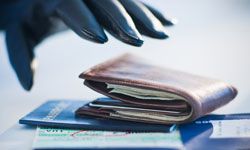Your passport is fresh and awaiting new stamps. Your bags are packed. You've put a hold on your mail, arranged for someone to water your plants and picked up a set of travel-sized toiletries for your carry-on. You're definitely ready to travel. Maybe you're looking forward to eating exotic cuisine, adventures in foreign countries, visits to historical landmarks.
You're probably not, however, expecting to be the victim of a tourist scam.
Advertisement
In 2008, more than 25 million Americans traveled overseas. To a seasoned scam artist, that's a lot of potential victims! The best way to avoid falling victim to a crime is to use your head. Be aware of your surroundings, trust your gut, take appropriate precautions and keep your wits about you. Traveling is supposed to be fun. Going on vacation doesn't have to be a scary or paranoia-inducing experience. The idea is to travel smart and know what (or who) to avoid. So let's get you acquainted with some of world's most common cons.

